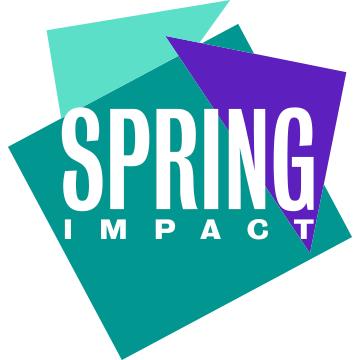Two months ago, I attended the always amazing Skoll World Forum on Social Entrepreneurship at the timeless University of Oxford. Attracting delegates from nearly 65 countries and global leaders in social innovation, the Skoll World Forum seeks to accelerate entrepreneurial approaches and solutions to the world’s most pressing problems by uniting social entrepreneurs with partners in a collaborative pursuit of learning, leverage, and large-scale social change.
In 2013 I attended my first Skoll World Forum, and left with a year’s worth of education from three days of listening and engaging. This year, I left my third Forum equally impressed, inspired and with fresh insights. Below are three insights that could be considered in relation to your organisation when thinking about adaptability and scale.
Adapt for partners
Chuck Slaughter is the Founder of Living Goods, a game-changing model that empowers health entrepreneurs to deliver life-saving products to the doorsteps of the poor.
During Chuck’s acceptance speech of the Skoll Award, he spoke about how Living Goods’ Community Health Workers “make a difference and make a living.” Living Goods has shown that their model not only creates value for their Community Health Workers and their customers, it also reduces under-five mortality by 25%, all while costing less than $2/person/year.
Chuck went on to highlight that it is possible to reach the hard to reach in a cost-effective way that is scalable. Living Goods is aiming to scale its impact to 50 million individuals over the next 10 years by working with large-network partners like PSI and BRAC to learn from and adapt the Living Goods model.
Adapt for people
I attended the Higher Ground: Faith and Spirituality as Levers for Change panel discussion. Moderated by Skoll Foundation Principal, James Nardella, the discussion explored if and how religion can be a potent tool for creating sustainable social progress.
James’ very first words struck a chord with me – “This session is not about faith and religion as a barrier to social good. We’ve all had those conversations.” Instead, the focus was on how religious faith can fuel sustainable social good – “Faith as a positive engine for social good.”
Imam Hussaini Bagnya Muhammad spoke about how the challenge for religious leaders today, whether a Jewish rabbi, Christian pastor, or Muslim Imam, is to take a 1000 year+ old religious text and apply or “fix it to contemporary situations today.” He then went on to speak about how religious leaders need to adapt to the peoples’ current situation. The key word here, is adapt (surprise!). This certainly makes sense to me, as local adaptation is crucial to driving long-term implementation in a sustainable way at scale.
Adapt technology for you
During the Can Digital Innovations Unlock Partnerships to Scale Impact panel, One Acre Fund’s Andrew Youn spoke about using technology to help your organisation scale more efficiently.
“We see ourselves as a big distribution network for life improving products and services to very rural and disconnected people. And our customers use our products and services to earn more income.”
Andrew highlighted that most of the world’s poor engage in one economic activity – agriculture. “If we can make that activity more productive, we can move mass numbers of people out of poverty.” To this extent, Andrew states that One Acre Fund has one singular focus: to help farmers become more productive.
The One Acre Fund makes farmers more effective by providing a bundle of services to farmers (e.g. seed and fertiliser delivery, access to finance, training to use farming inputs responsibly), which helps them achieve significantly higher yields. One Acre Fund has scaled to most countries in East Africa, serving around 400,000 families relying on a farm based income, and is growing by 50% per year. Andrew highlighted that his organisation uses technology to scale One Acre Fund’s impact in three major ways:
- Performance and field force management: at scale, paper becomes increasingly difficult to track and manage performance. Technology makes complicated systems more effective.
- Financial services: all payments from farmers in Kenya are collected via M-Pesa mobile money, which enables One Acre Fund to collect money more efficiently and effectively than paper money.
- Providing training and behaviour change: being able to use technology to get more information to individuals whether it is via text, voice, radio or other means, to could become a training supplement to in-person interaction.

